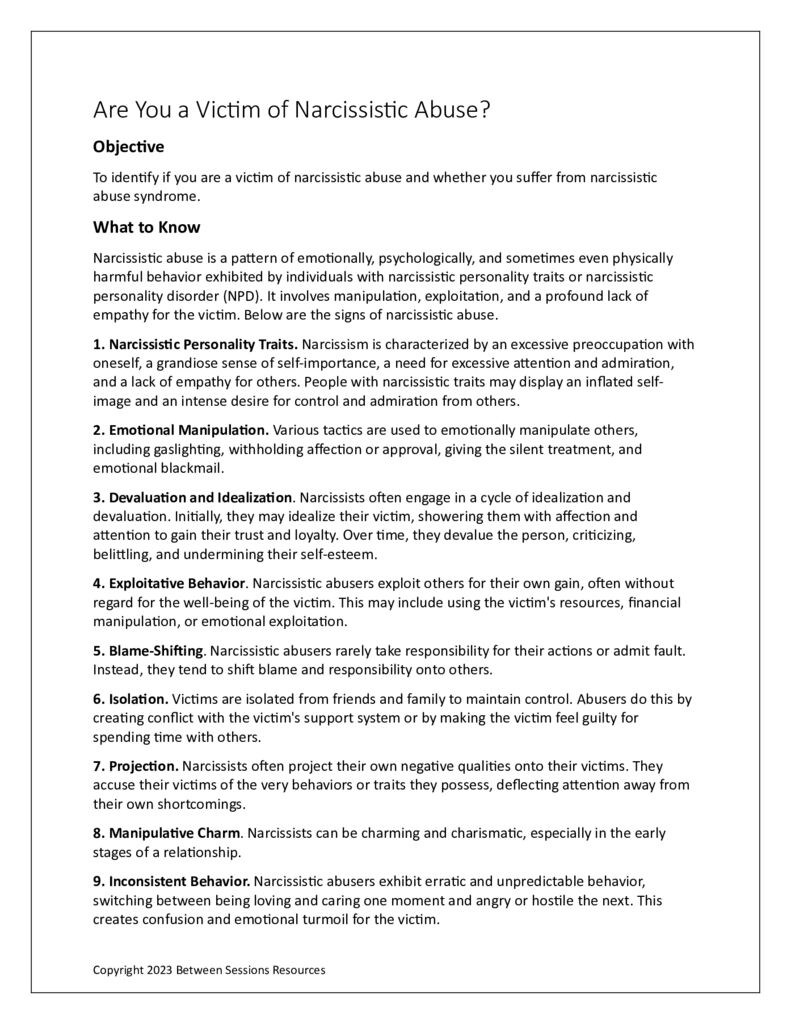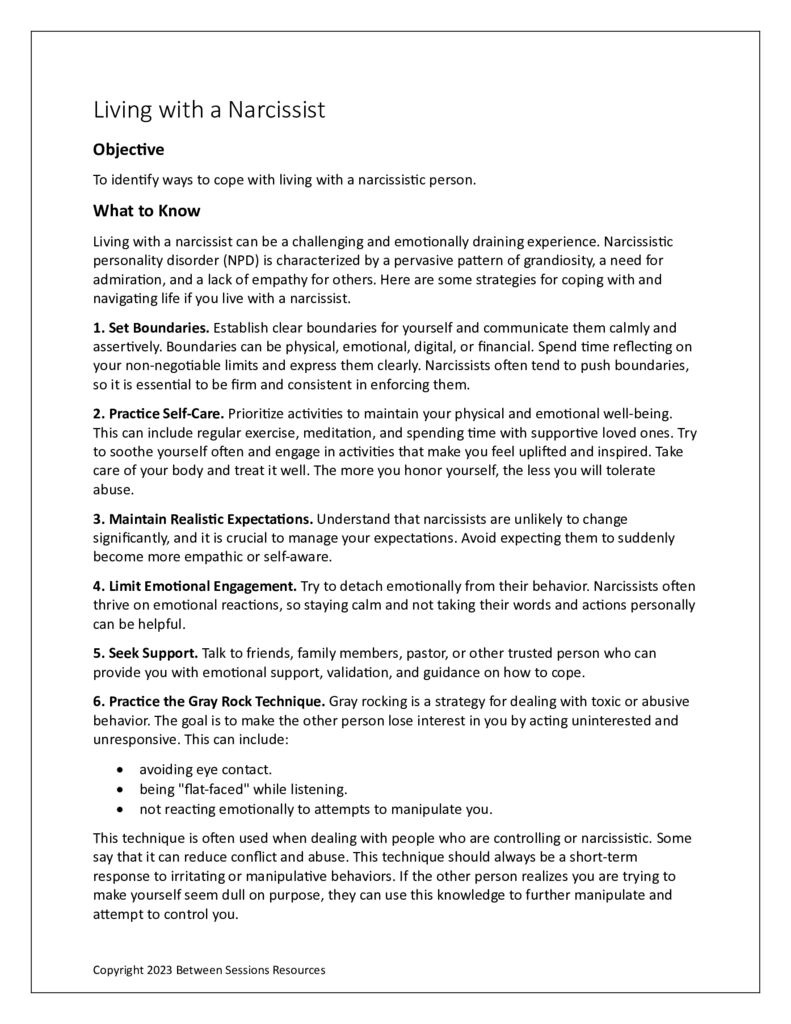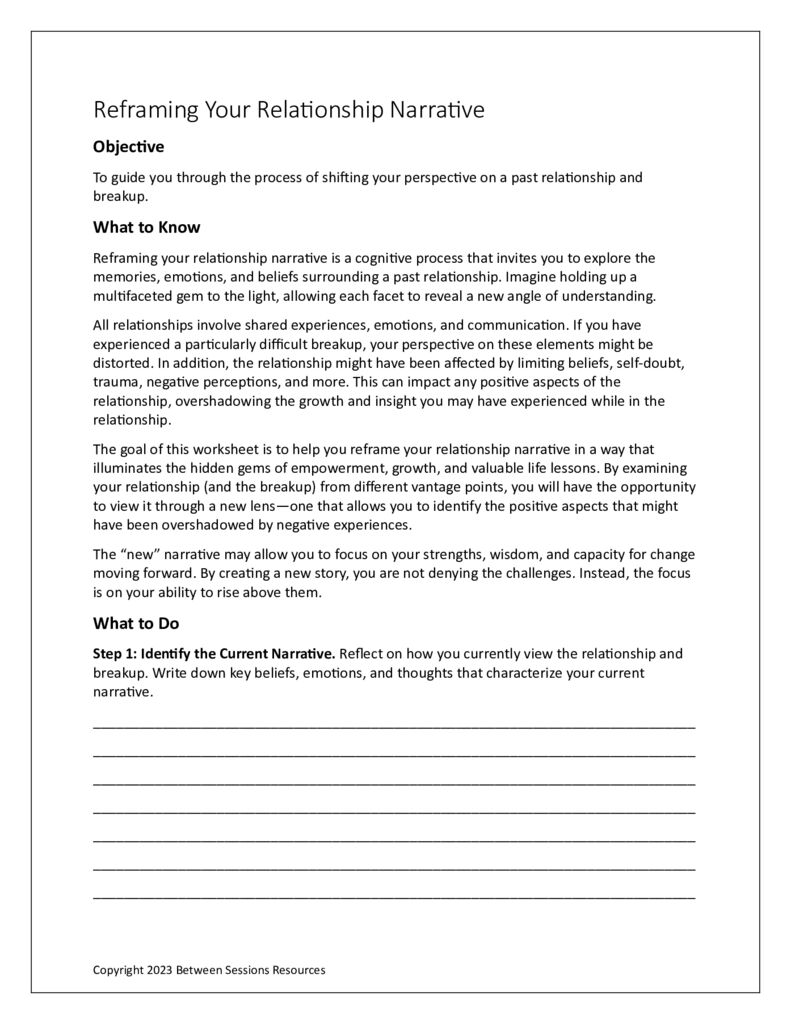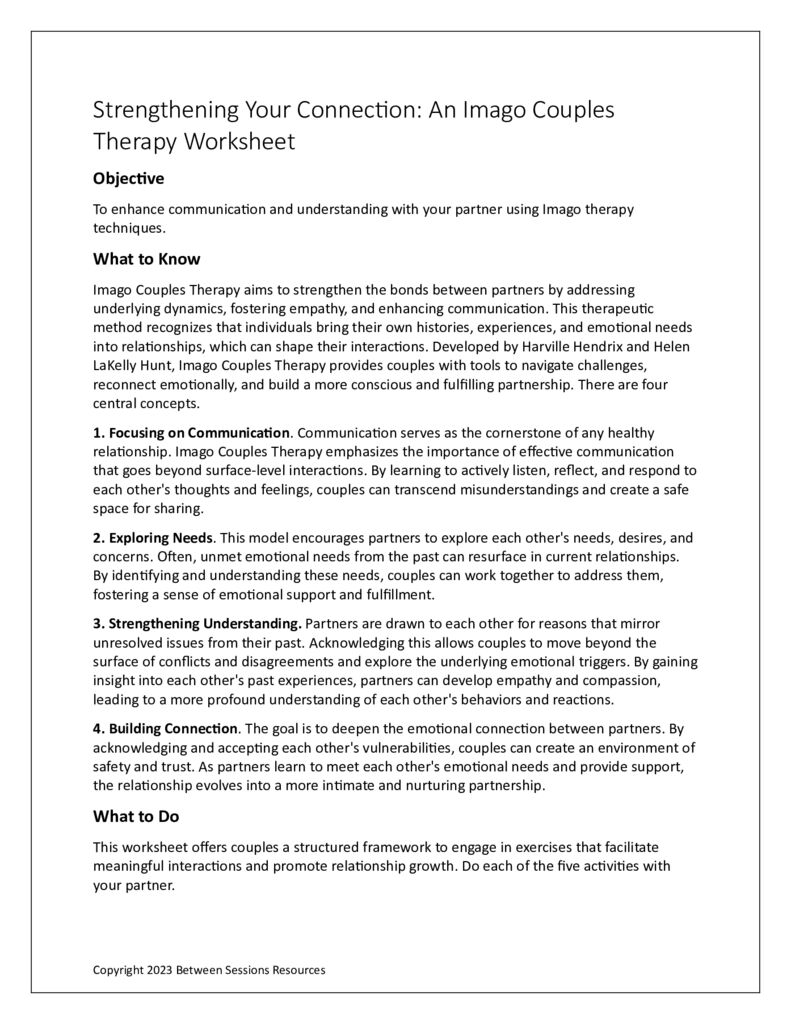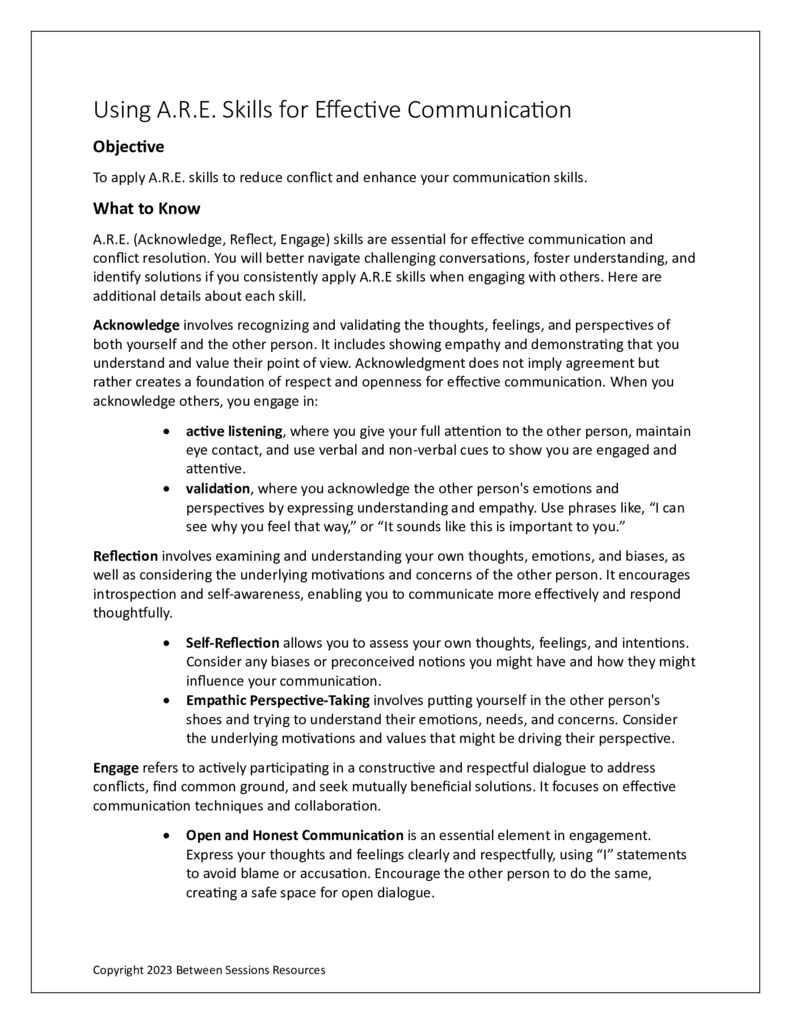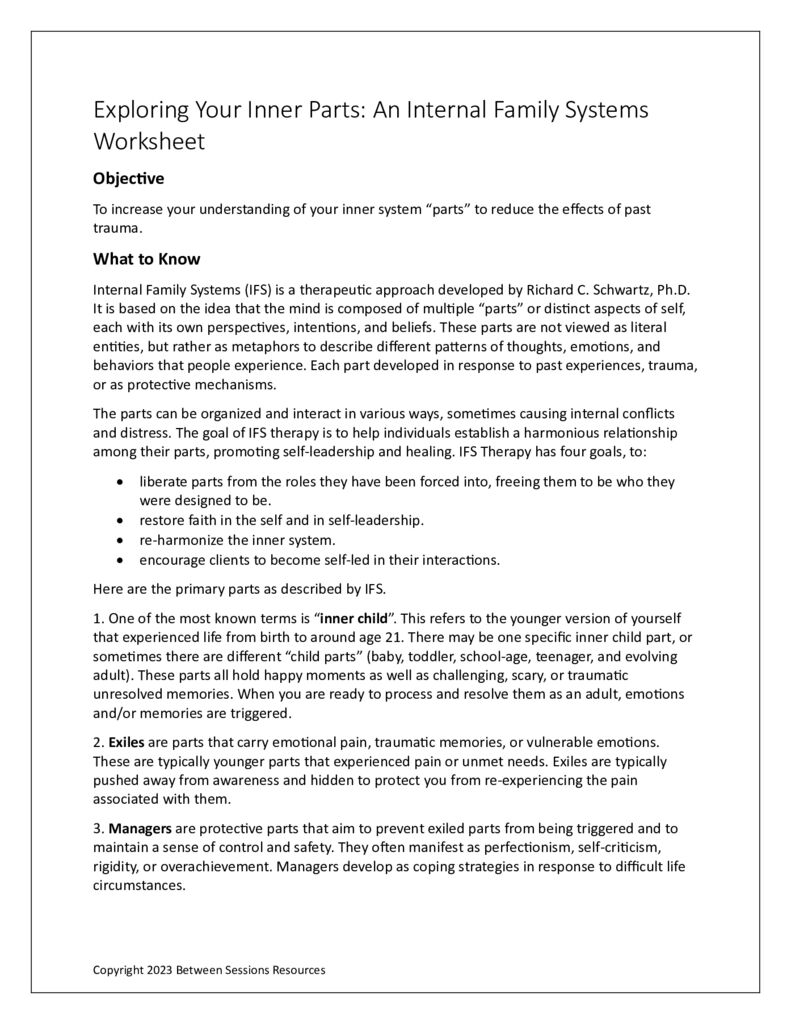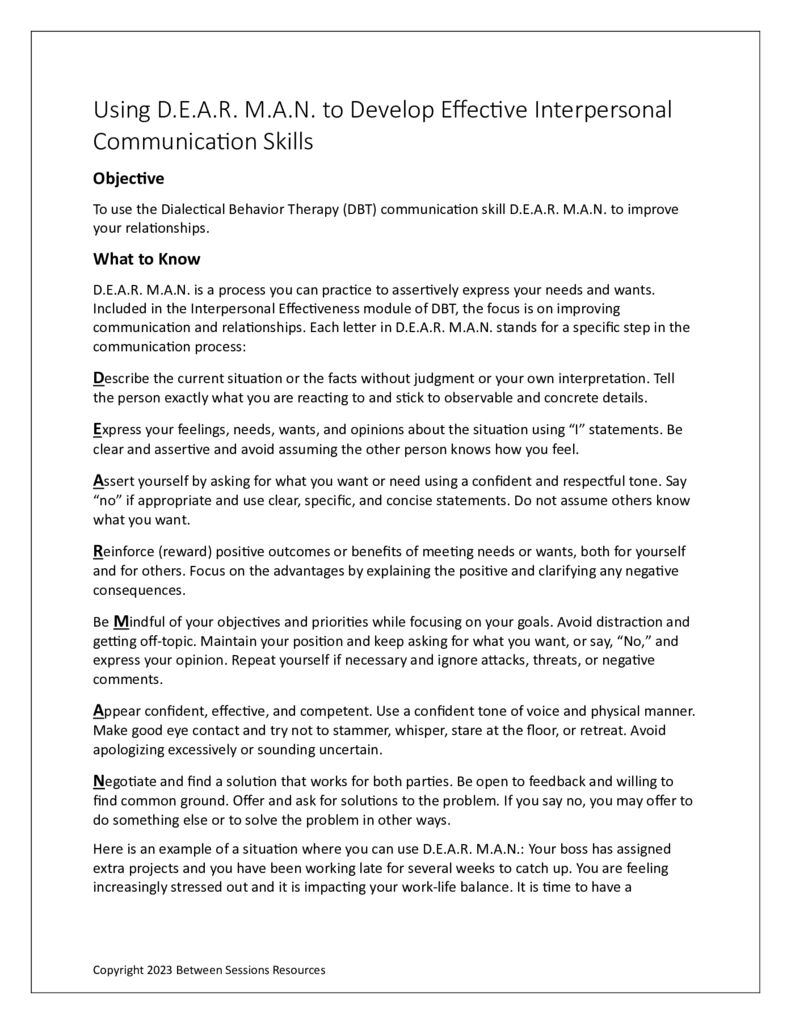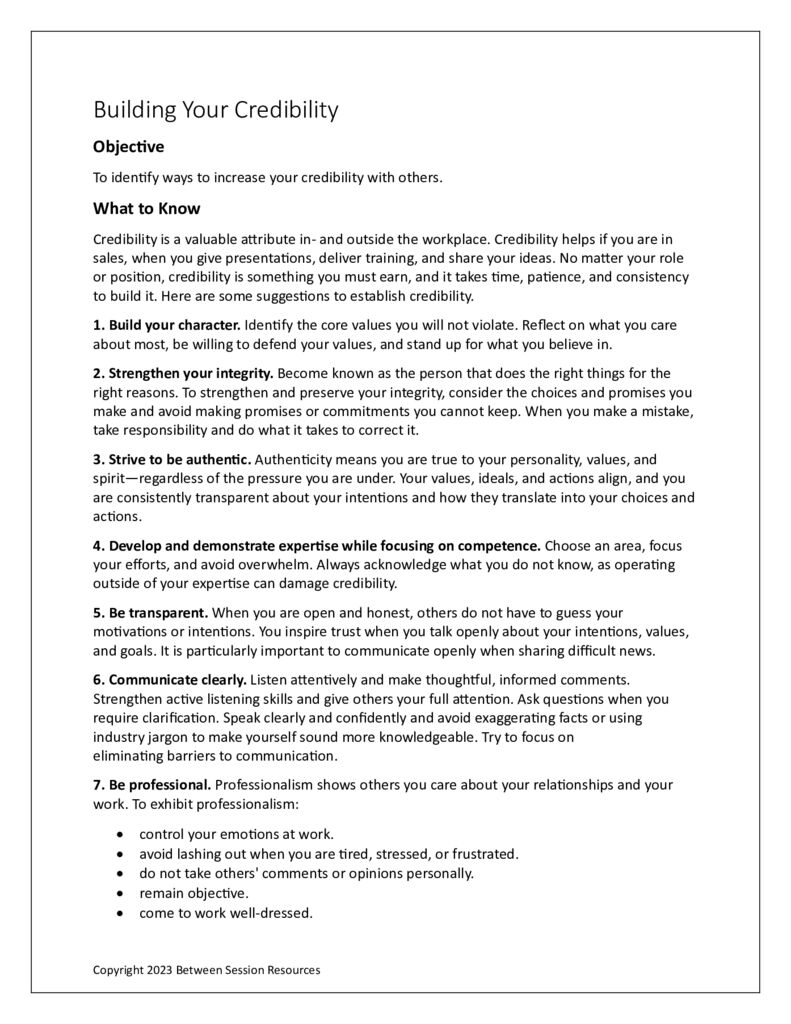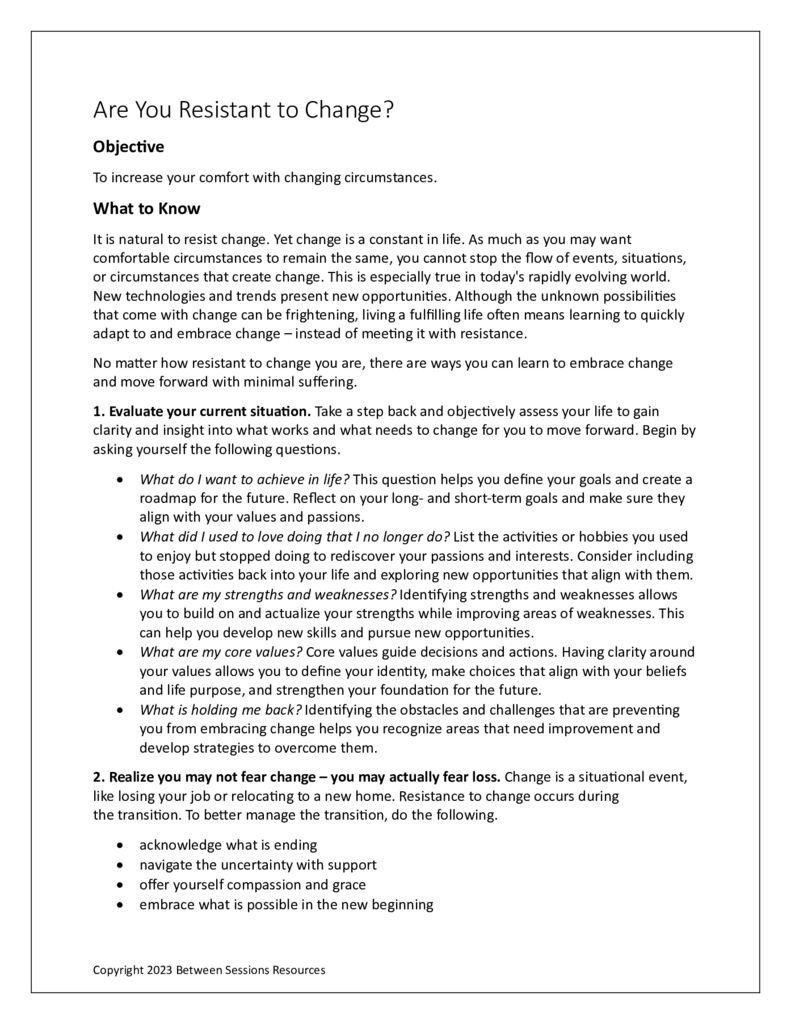Narcissistic abuse is a pattern of emotionally, psychologically, and sometimes even physically harmful behavior exhibited by individuals with narcissistic personality disorder. This worksheet details the signs of narcissistic abuse and helps people understand the symptoms of Narcissistic Abuse Syndrome. (0923, narcissism)
Living with a narcissist can be a challenging and emotionally draining experience. This worksheet gives people 18 strategies to cope with people who are grandiose, have a need for constant admiration, and lack empathy for others. Questions on the worksheet are designed to help people understand how dealing with a narcissist has affected their well-being. Questions also help people explore their self-care practices, how they set boundaries, how their goals are affected by living with a narcissist, and more. (0923, narcissism, NPD, personality disorders, abuse, boundaries, self-care)
This workbook contains 25 techniques to help people heal and move on after a difficult break-up. The techniques are rooted in Cognitive Behavior Therapy, including DBT and ACT techniques. The workbook teaches people coping skills, how to tolerate upsetting feelings, how to build a support system, how to manage anger, and more. (0823. divorce, break-up, relationships)
Reframing your relationship narrative is a cognitive process that invites people to explore the memories, emotions, and beliefs surrounding past relationships. The goal of this worksheet is to help people reframe their relationship narrative in a way that illuminates instances of empowerment, growth, and valuable life lessons. The worksheet directs people to examine limiting beliefs about their relationship, explore alternative perspectives, and think about the lessons they have learned. (0823, relationships, divorce)
Imago Couples Therapy aims to strengthen the bonds between partners by addressing underlying dynamics, fostering empathy, and enhancing communication. This worksheet reviews the four central concepts of this therapy: focusing on communication, exploring needs, strengthening understanding, and building connection. Exercises include sharing appreciation, reflective listening, and sharing future actions that support each other’s emotional needs. (0823, marriage therapy, couples therapy, family therapy, communication)
A.R.E. (Acknowledge, Reflect, Engage) skills are essential for effective communication and conflict resolution. A.R.E. skills can help people better navigate challenging conversations, foster understanding, and identify solutions to interpersonal problems. This worksheet helps people learn these skills and apply them in personal and business relationships. (0623, communication, relationships, conflict-resolution)
Internal Family Systems (IFS) is a therapeutic approach developed by Richard C. Schwartz, Ph.D. It is based on the idea that the mind is composed of multiple “parts” or distinct aspects of self, each with its own perspectives, intentions, and beliefs. This worksheet is an introduction to this approach explaining the different internal parts we all have, as well as a framework for creating a dialogue between the parts. Questions are intended to help people understand how their inner parts are affecting their day-to-day lives. (0623. depression, self-compassion, insight, relationships)
This technique from Dialectical Behavior Therapy (DBT) teaches people a 7 step technique to be more assertive in social relationships. (0423, DBT, relationships, assertive, interpersonal effectiveness)
This worksheet is designed to help people build their credibility in the workplace and in the community. It suggests 12 ways to build credibility such as being open to new ideas, being transparent, and communicating clearly. The worksheet includes a chart for people to record their “credibility practices” for a month. (0323, workplace issues, self-esteem, relationships)
This worksheet is designed to help people who resist change, even when change may lead to the resolution of problems and happier lives. The worksheet gives seven strategies to help people see the benefit of changing. It includes questions for people to answer regarding what they fear about change, what is holding them back, and what are their core values. People are challenged to do at least one activity a week that pushes them out of their comfort zone. (0323, coaching, transitions, symptoms)

